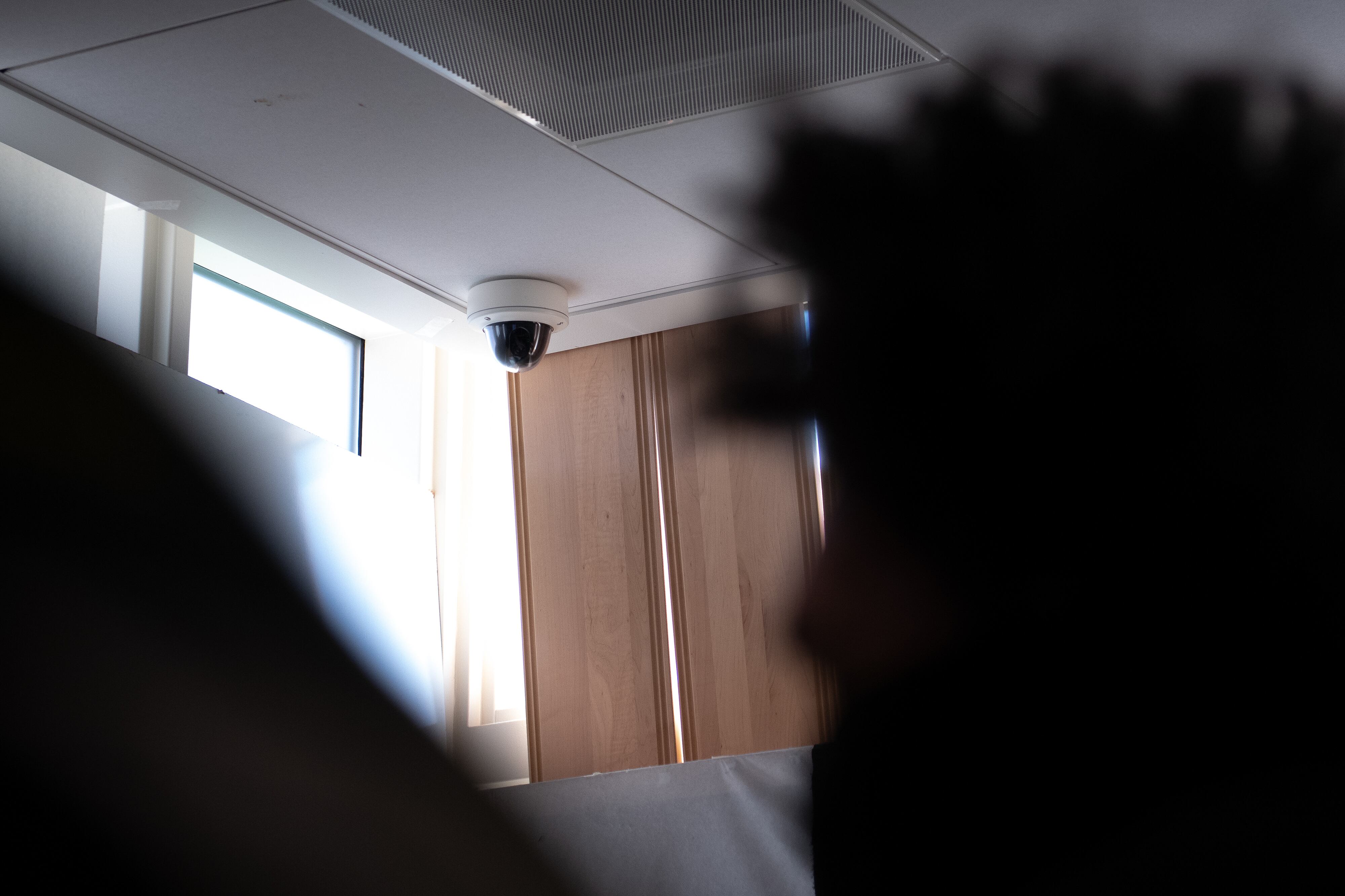Newark Public Schools plans to install more than 7,000 new security cameras and replace outdated ones as part of an initiative to ensure the continued safety of students and staff, the district said.
The plan was announced during last month’s board of education business meeting, where board members also raised questions about protecting student privacy. District leaders did not provide an estimated cost but said the initiative would be funded through federal COVID relief money after finalizing costs and a vendor to complete the project.
The push to upgrade security cameras in Newark schools dates back to 2021, when the district’s spending plan included $2.4 million to install or upgrade roughly 5,000 security cameras. Districts nationwide have also invested significant portions of their budgets and federal relief funds to upgrade security measures as worries over student safety grow following school shootings in Tennessee and Colorado.
The new camera system will replace the district’s current one and provide more coverage of the city’s public schools. During last month’s meeting, school board administrator Valerie Wilson said the district currently has blind spots in camera coverage. In some cases, she said, cameras can only be accessed by school staff and not by district officials and have limited recording storage.
The district plans to have a new camera system that can record at certain times of the day such as when students or staff are in range or when a car appears in view. Additionally, the system will be set up to work with sensors that can detect the presence of guns, chemicals in vape pens, and the sounds of a gun, glass breaking, or human screams, according to a board operations committee report.
During the business meeting, board Vice President Asia Norton raised concerns over student privacy, specifically the potential risks of system hacks and ensuring restricted access to specific staff.
Wilson said the new system will provide remote access to authorized district and school staff and also have the ability to track and monitor school buses. The security system should also provide higher quality images, a live feed, and artificial intelligence cameras that can be programmed to provide alerts and notifications. They will also help assist law enforcement with investigations as well as prevent any school incidents or intervene in student altercations, according to the operations report.
Details about the project’s estimated cost, systems under consideration, and installation timeline were not provided during the meeting. Nancy Deering, the district’s acting communications director, did not respond to questions about the project.
Newark, New Jersey’s largest school district, received roughly $287 million through three federal aid packages meant to help schools respond to the COVID-19 pandemic.
The district received approximately $84 million dollars of Elementary and Secondary School Emergency Relief funds, or ESSER II, and $182 million dollars in American Rescue Plan, or ARP, dollars. As of February, the district had spent roughly 74% of its ESSER II funds and 14% of its ARP funds. The majority of district departments are currently using ESSER II funds and have until September 2023 to use those dollars and until September 2024 to use ARP funds.
The district also provided its security guards with training in bag scanners, active shooter response, customer service, uniform inspection, the drug and alcohol policy, and student attendance. Newark also plans to hire more security guards and updated its software to track school incidents.
Last year, Gov. Phil Murphy approved multiple efforts to keep children in schools safe across the state.
In August 2022, New Jersey allocated $6.5 million in ARP funds to have school districts digitize school building maps and make them available to first responders in emergency situations. The maps will include aerial views of school buildings, floor plans, building access points, and utility shut-offs among other information.
About half of all 3,000 public and private schools throughout the state have already created the digital school building blueprints, known as “Collaborative Response Graphics” and created by Hamilton company Critical Response Group. The plan will apply to the 2023-24 school year.
Murphy also approved legislation in August 2022 to require boards of education in each school district to develop and adopt a policy to establish a threat assessment team tasked with identifying students who might be a threat to school safety.
The New Jersey School Board Association’s school security committee also recommends that school districts “periodically review” security plans, bolster security technology, and ensure “unobstructed” communication between school security personnel and emergency responders.
Jessie Gomez is a reporter for Chalkbeat Newark, covering public education in the city. Contact Jessie at jgomez@chalkbeat.org.







